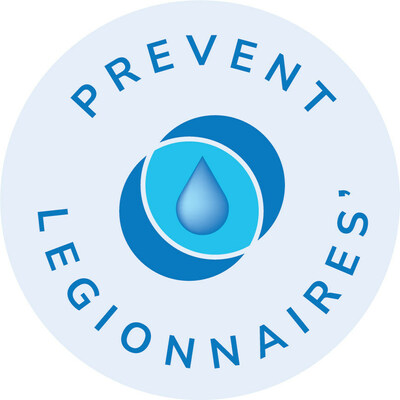With Legionnaires' Cases Growing, New York Must Take a Comprehensive Approach to Address Disease
PR Newswire
WASHINGTON, Aug. 7, 2025
WASHINGTON, Aug. 7, 2025 /PRNewswire/ -- New York City Health Department's recent announcement of an investigation into a cluster of Legionnaires' disease cases in Central Harlem is yet more evidence of the need for New York City to take a much broader approach to Legionnaires' disease prevention, according to the Alliance to Prevent Legionnaires Disease.
Since July 25, 2025, 67 individuals have been diagnosed with Legionnaires' disease in Central Harlem. Tragically, three individuals have died. Legionnaires' disease, a severe form of pneumonia, is caused by the waterborne bacteria legionella found naturally in source water and soil. If not properly treated and filtered, legionella can escape water treatment plants, entering water distribution systems, and ultimately infecting building, facility and home water systems where humans can become exposed. Proactive and comprehensive measures must be taken to address legionella from source-to-tap if we are going to succeed in preventing the serious disease it causes.
"The growing outbreak in Harlem is further evidence the current approach pursuant to a local law (77-2015) is ineffective in curbing the rising incidence of this disease," said Bob Bowcock, Alliance Board Member and water expert who founded Integrated Resource Management. "The data speaks for itself: since the law's enactment, New York City has experienced record-high cases of Legionnaires' disease, continued outbreaks, and rates among the highest in the country. This calls for a new approach to effectively treat this disease as the water quality issue it is."
Local Law 77 passed a decade ago, mandates registration, inspection, cleaning, disinfection, and testing of certain water-using equipment in buildings. However, despite these measures, the city continues to face elevated cases and outbreaks that remain unabated, impacting economically disadvantaged areas the most. The singular emphasis on end-user equipment is reactionary once the bacteria has already entered premise plumbing systems rather than a comprehensive or preventative water-quality strategy.
"My children and I lost our father and husband to Legionnaires' disease eight years ago after he contracted the disease while receiving cancer treatment in New York City. To see yet another outbreak which has sickened so many and knowing three people have lost their lives, makes us feel both devastated for the families who are experiencing the same, unimaginable loss we have, and angry to see that it appears that nothing has changed since our experience. We continue to see a too narrow focus in both the City's approach to Legionnaires' prevention and investigating this outbreak. This is not comprehensive or proactive, but rather reactionary and limited. As a NJ resident who helped to enact Senate bill 2188 last year, I call on New York to put a source-to-tap policy in place in order to ensure that no more families must go through what I and those in New York are being forced to experience," said Gwen Hanlon, wife of Kevin Hanlon who died of Legionnaires' disease in 2017.
Further, numerous studiesi have found a clear link between periods of heavy rainfall and an increased risk of contracting Legionnaires' disease. Intense rain creates environmental conditions that support the growth and spread of legionella bacteria. On July 14, New York City experienced heavy rain and flash flooding, with Mayor Eric Adams reporting that Harlem experienced some of the heaviest rainfall during the event. The City's Department of Environmental Protection called it one of the most intense rainstorms since Hurricane Ida. Given the well-documented connection between rainfall and Legionnaires' cases, New York City should carefully examine the likelihood that this storm disrupted the water distribution system by dislodging and dispersing legionella bacteria, contributing to the current outbreak with cases first diagnosed 11 days after (incubation period for Legionnaires' disease is 10-14 days).
"New York must take a broader approach that addresses Legionnaires' disease at its source," added Bowcock. "Effective prevention begins at the water source and distribution system through proactive monitoring, management and treatment to prevent the spread of the bacteria as water moves through the system to the end user. And when there are cases, officials must conduct thorough investigations which look at all potential sources including the water system for recent disruptions which can cause legionella bacteria to enter our home and building plumbing systems. Greater public education and notification of increased risks when water disruptions occur is also critical to preventing disease. Unfortunately, innocent people are paying the price for New York's narrow approach."
The CDC reports that there are more than 8,000 cases of Legionnaires' disease reported annually, with individual cases comprising 96% and outbreaks accounting for only 4%. One in ten individuals who contract Legionnaires' disease will die from it and the fatality rate is higher among more susceptible populations.
"We call on New York to look to the recent actions taken by its neighbors in New Jersey who passed a comprehensive, source-to-tap law for Legionnaires' disease prevention which takes effect in May 2026," urged the Alliance.
The Alliance to Prevent Legionnaire' Disease is a national non-profit focused on preventing Legionnaires' disease through education, advocacy and awareness. For more information, visit the Alliance's website: https://preventlegionnaires.org/.
i Hicks LA, Rose CE Jr, Fields BS, Drees ML, Engel JP, Jenkins PR, Rouse BS, Blythe D, Khalifah AP, Feikin DR, Whitney CG. Increased rainfall is associated with increased risk for legionellosis. Journal of Infectious Diseases. 2007.
Chen N-T, Chen M-J, Guo C-Y, Chen K-T, Su H-J. Precipitation increases the occurrence of sporadic Legionnaires' disease in Taiwan. Scientific Reports. 2020.
Garcia-Vidal C, Labori M, Viasus D, Simonetti A, Garcia-Somoza D, Dorca J, Gudiol F, Carratalà J. Rainfall is a risk factor for sporadic cases of Legionella pneumophila pneumonia. PLoS ONE. 2013.
![]() View original content to download multimedia:https://www.prnewswire.com/news-releases/with-legionnaires-cases-growing-new-york-must-take-a-comprehensive-approach-to-address-disease-302524670.html
View original content to download multimedia:https://www.prnewswire.com/news-releases/with-legionnaires-cases-growing-new-york-must-take-a-comprehensive-approach-to-address-disease-302524670.html
SOURCE Prevent Legionnaires'


